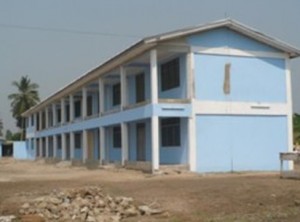NIB adopts new inspection approach to improve standards in schools
 The National Inspectorate Board (NIB) under the Ministry of Education, has revised its inspection manual and adopted a new approach to inspection for the enhancement of quality standards in pre-tertiary schools.
The National Inspectorate Board (NIB) under the Ministry of Education, has revised its inspection manual and adopted a new approach to inspection for the enhancement of quality standards in pre-tertiary schools.
The current focus has shifted from the previous teacher to learner-centred, to an entirely new approach that, it says, focuses on teaching and learning.
Mrs Gifty Twum Ampofo, Deputy Minister of Education in-charge of Technical and Vocational Education and Training (TVET), said the aim is to ensure quality education delivery.
She was speaking at a five day training workshop on the revised manual and the new inspection approach, for Team Inspectors from the northern sector of the country, at Fumesua, in the Ejisu Municipality.
The training programme, which was organised by the NIB in collaboration with Transforming Teacher Education and Learning (T-TEL) Project, is aimed at equipping the participants with the new inspection approach based on the revised inspection manual and will also equip them appropriately on the new digitised inspection tools to be used, beginning this 2019-2020 academic year.
Mrs. Ampofo also announced that, from October this year, all school inspection reports would be published on the NIB website, while the Inspection Evaluation Framework (IEF) used to evaluate schools, would also be posted on the same website to ensure the public understands how schools are rated.
In order to ensure greater accountability, she said the inspection reports would now be shared with a wider network of stakeholders including; Regional Ministers, Members of Parliament, Municipal and Regional Directorates of Education.
She urged the participants to take the training serious to arm themselves with the needed skills, for the new school inspection approach in order to enable them discharge their duties effectively.
Dr. Hagar Hilda Ampadu, Acting Executive Secretary of NIB, said the new inspection approach was data analysis friendly and the aim was to ensure that inspection data could be used promptly for decision making by stakeholders.
She said for a school in Ghana to be said to have a minimum standard for quality education, it must at least rate satisfactory on the NIB 4-point rating scale. These are 4 for outstanding, 3 for good, 2 for satisfactory and 1 for unsatisfactory.
This, she said would reflect in all inspection reports, which would have five key findings and recommendations for schools to implement.
Source: GNA
